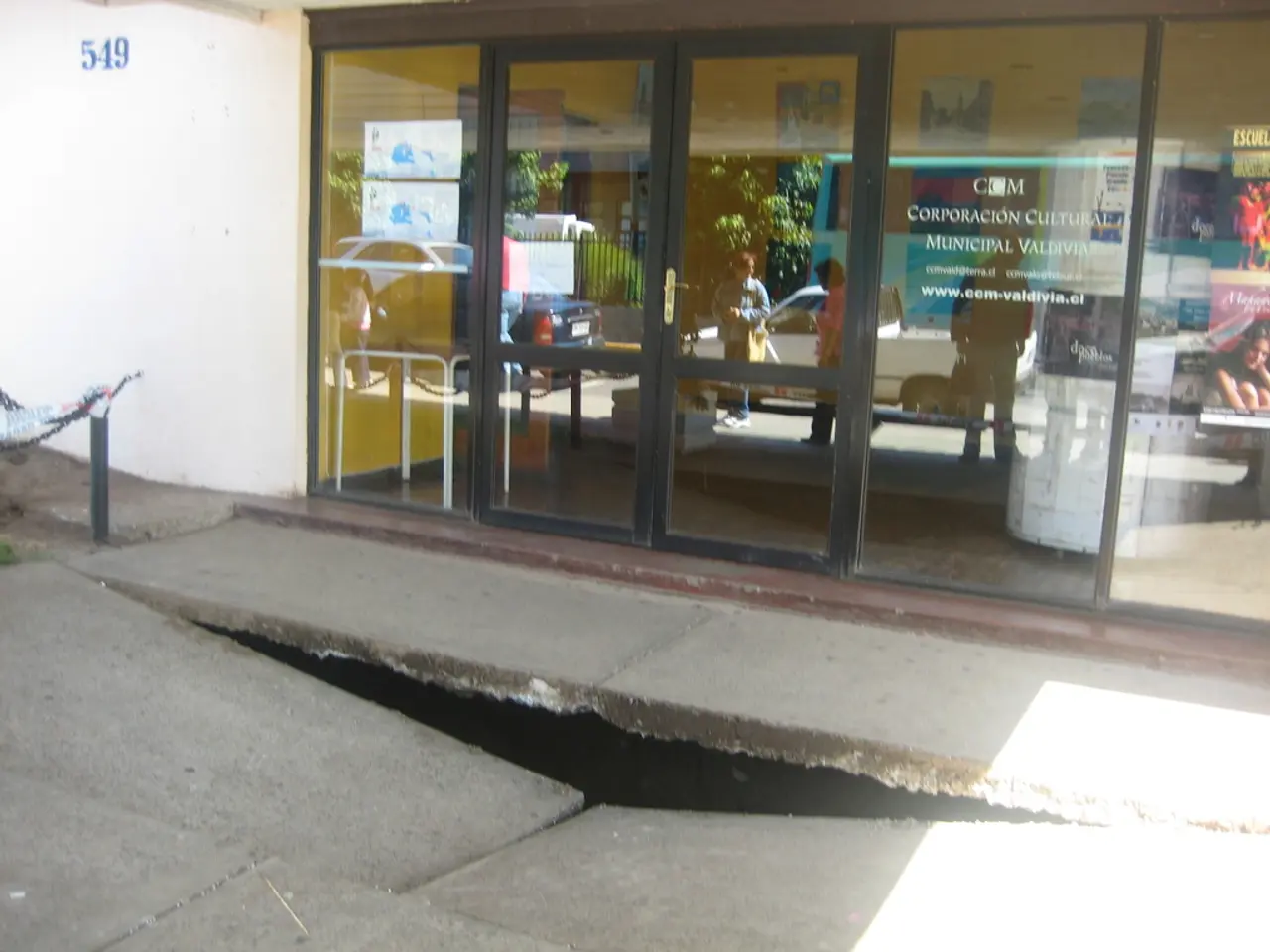Companies with Trouble: Authorities Eliminate Over 11,500 Inactive Businesses From Register
In a significant move to combat economic crimes such as fraud and money laundering, the UK government has embarked on a crackdown on corporate structures suspected of facilitating these illicit activities. This initiative forms part of the Economic Crime and Corporate Transparency Act (ECCTA) 2023, which represents a significant component of the UK's efforts to bolster its defences against economic crimes.
## Key Developments
The UK government has published its second progress report on implementing the ECCTA, detailing progress made and future plans. This includes reforms to company law, limited partnerships, and the Register of Overseas Entities (ROE). Notably, Companies House has begun rolling out voluntary identity verification (IDV) procedures to ensure individuals can verify their identities before mandatory IDV comes into effect in Autumn 2025. This move aims to strengthen corporate transparency and prevent misuse of company structures for economic crimes.
A new corporate offense under the ECCTA, coming into force on September 1, 2025, will hold corporations liable if an associated person commits fraud intending to benefit the organization, unless the organization can prove it had reasonable fraud prevention procedures in place. This offense is part of a broader shift towards strict liability, aiming to increase corporate accountability for economic crimes.
The ECCTA applies broadly to large organizations operating in or benefiting from the UK, including those headquartered overseas. The Serious Fraud Office (SFO) is keen to apply the new offense, emphasizing the need for companies to establish robust fraud prevention measures to avoid prosecution.
## Future Steps
The government intends to press ahead with ECCTA provisions, including the new 'failure to prevent fraud' offence coming into force this September. Further reforms include extending IDV requirements to more types of companies and enhancing enforcement activities through Companies House.
The operation to remove suspected fraudulent firms, led by the National Economic Crime Centre, has already seen over 11,000 UK firms struck off the Companies House register in the past year. This clampdown on corporate structures comes ahead of Companies House reform under the ECCTA.
The probe identified several firms that existed only on paper and were not conducting genuine commercial activity. Three high-risk trust and company service providers are being shut down, and 27 are facing enforcement action. Key individuals involved in the mass incorporation of companies have been barred from further registrations.
The changes at Companies House, aimed at reducing abuse of UK corporate structures, are the biggest overhaul since its founding in 1844. The crackdown on corporate structures coincides with a new enforcement strategy published by the Insolvency Service, which will expand its role in investigating companies linked to economic crime.
Police and enforcement officers focused on suspicious company formation agents and high-risk addresses during the operation. Among small firms, 83% admit they have no ID verification process in place. Only 2.86% of the estimated 7 million individuals required to verify their identity have done so, according to Companies House figures.
The clampdown on corporate structures is a significant step towards ensuring the Companies House register supports genuine business activity, as stated by Dave Magrath, director at the Insolvency Service. Rachael Herbert, director of the National Economic Crime Centre, estimated that over £100bn is laundered through or within the UK each year, with much of it facilitated by UK-registered companies. The authorities uncovered 'significant' volumes of criminal property, which are now subject to civil recovery efforts.
In conclusion, the UK's crackdown on corporate structures suspected of facilitating economic crimes is a comprehensive and far-reaching initiative. The ECCTA and its accompanying reforms represent a significant step forward in the UK's efforts to combat economic crimes, ensuring a more transparent and accountable business environment.
- Moving beyond the economic crime focus, the ECCTA's reach extends to large organizations operating or benefiting from the UK, regardless of their location, thereby making political and general news headlines.
- In an effort to prevent the misuse of company structures in the realm of crime and justice, the UK government, through the ECCTA, is enforcing stricter identity verification procedures and enhancing enforcement activities like those led by the National Economic Crime Centre.








